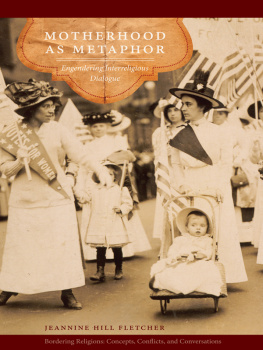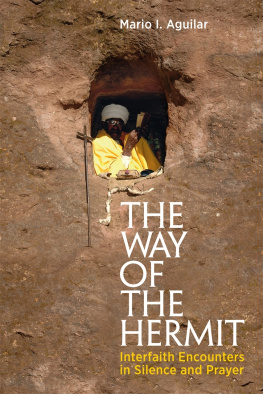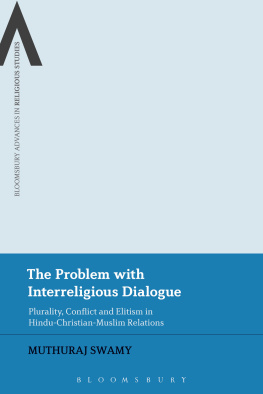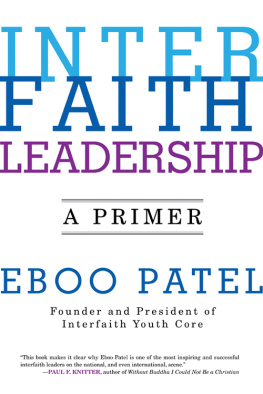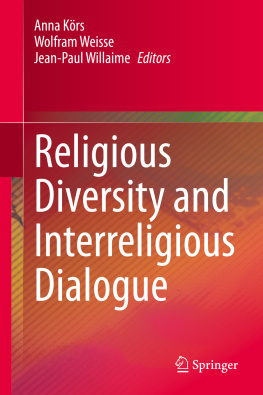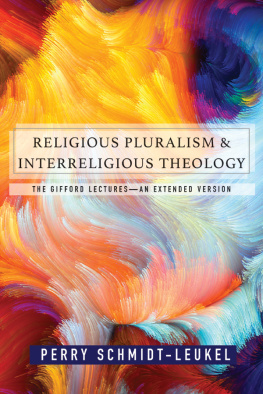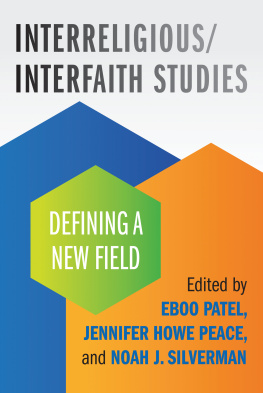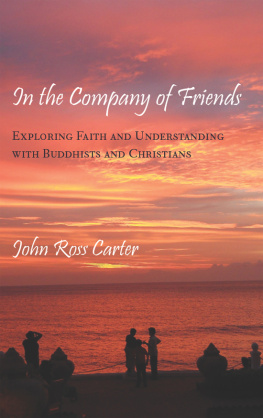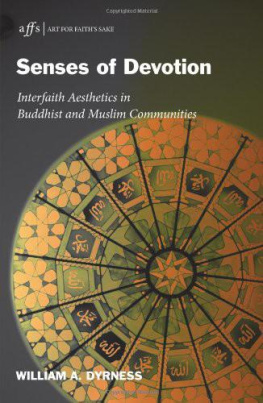MOTHERHOOD AS METAPHOR
| Bordering Religions | / | Concepts, Conflicts, and Conversations |
SERIES EDITORS
Kathryn Kueny, Karen Pechilis, and James T. Robinson
MOTHERHOOD AS METAPHOR
Engendering Interreligious Dialogue
JEANNINE HILL FLETCHER
Fordham University Press NEW YORK 2013
Copyright 2013 Fordham University Press
Al l rights reserved. No part of this publication may be reproduced, stored in a retrieval system, or transmitted in any form or by any meanselectronic, mechanical, photocopy, recording, or any otherexcept for brief quotations in printed reviews, without the prior permission of the publisher.
Fordham University Press has no responsibility for the persistence or accuracy of URLs for external or third-party Internet websites referred to in this publication and does not guarantee that any content on such websites is, or will remain, accurate or appropriate.
Fordham University Press also publishes its books in a variety of electronic formats. Some content that appears in print may not be available in electronic books.
Library of Congress Cataloging-in-Publication Data is available from the publisher.
Printed in the United States of America
15 14 13 5 4 3 2 1
First edition
To Francis and Elisabeth
Virginia and James
In Gratitude for Roots and Wings
CONTENTS
In my first book, Monopoly on Salvation? A Feminist Approach to Religious Pluralism, I set out to discover what difference it would make to bring feminist theoretical and theological insights to bear on contemporary discussions of religious difference. It seemed that the theologies being offered were stuck at an impasse of seeing persons of different religions either as fundamentally the same or as radically different. To this discourse on religious pluralism, a field dominated by male scholars, I brought the feminist theoretical consideration of our hybrid identities as a way of recognizing that each of us encounters our others with a dynamic mix of sameness and difference. The multiplicity of who we are provides a multitude of possible sites of encounter, but nevertheless many things about our others remain inaccessible to usthey fundamentally remain mystery, although we can encounter one another in solidarity and friendship.
Because the theological discourse on religious pluralism has been dominated by male scholars, Monopoly on Salvation? has been well received as an alternative feminist approach within the landscape of approaches to religious diversity. And yet, about three-quarters of the way to finishing that work, I realized that the methodology I had employed fell short of the feminist methodological frameworks in which I had been trained. That is, while I brought to bear a new feminist theoretical framework to a previously masculinist discussion, I was nevertheless working with male-centered traditions, mens voices, and mens experiences. The resources I had available to me for thinking about interreligious encounter were resources that had been formulated along the lines of malestream knowledge, where womens experience simply was not captured in historical writings or put forth as example of interfaith exchange. While the first book made its contribution, I realized that a more thoroughgoing feminist methodology might change the landscape more radically. With the research of this book I set out to ask the question: What difference would it make if it was womens voices and experiences that constituted the data of interreligious exchange?
Committing to a more thoroughgoing feminist methodology in drawing from womens voices and womens experiences, I now had a more daunting task in front of me. For while a range of mens voices and experiences in interfaith contexts were available to me in published works of missionary documents, doctrinal statements, or historical accounts, in published works little was available that took womens experiences as central. The original research for the book, then, was necessary before I could draw out from these experiences for theological consideration. For the theology that follows, I took three sites of womens interreligious encounter as my starting point. First, I attended to the experience of Catholic women of the Maryknoll order in the mission fields of China (drawn from research at their archives in Ossining, New York). Simultaneously, I began an ethnographic investigation of an interreligious dialogue group of women in Philadelphia, with interviews conducted over two years. In addition to these explicitly religious sites, I was compelled by my foremothers in feminist theology to recognize the secular space of the womens movement itself as data for the consideration of womens interfaith encounter.
What difference does it make when womens voices and experiences are taken as the point of departure for theological investigation? In the pages that follow I suggest several aspects of a distinctive approach to encountering our religious others: an approach that is fundamentally relational, grounded in friendship and the messiness of actual human lives; an approach that resists compartmentalizing sacred/religious over against secular/nonreligious; an approach that insists that our religious orientations must be accountable to the practical, material, and social outcomes that they engender. The insights in these pages have come almost exclusively from listening to and culling the theological reflections from women across the faith traditions of the world. To them, in their courage, their particularity, and their persistent mystery, we owe significant debt and apology for having not considered the possibility of their deep theological knowledge before.
As the dedication indicates, I am profoundly grateful to two sets of parents who have mothered me into authorship of this book. Francis Schssler Fiorenza nurtured in an unbelievable way the scholar I have become as he mentored me from a young graduate student to who I am today. The methods of Elisabeth Schssler Fiorenza have been among the most formative in shaping my feminist theological orientation. Franciss confidence in me and Elisabeths feminist methods provided the tools with which I found my own theological voice. The role these academic mothers have played in my scholarly development built on the foundation laid by my mothers of origin, Virginia and James Hill. Traces of their living influence and deep wisdom are found within these pages; I am sure my sense of mothering comes from them. Without these mothers in my life, this work would never have been birthed forth. For both sets of mothers I am grateful for both roots and wings.
The reader will find in the pages that follow a commitment to the idea that who we are as human beings never exists in isolation but is fundamentally relational in its formation and instantiation. It is fitting, then, that this opening acknowledge the countless mothers who have brought this book into being. The institutional home of Fordham University provided numerous resources for growing the research of this book. I am especially grateful to Dean Nancy Busch, whose awareness allowed child care to be included in a research budget that provided the initial grant for work in the archives of the Maryknoll Sisters (2005). Ellen Pierce was a friendly guide into the world of the Sisters in their letters, diaries, and other archival material. Fordhams Graduate School of Arts and Sciences also provided funds to support the interviews of the Philadelphia Area Multifaith Womens Group (20079). In the interviewing process, the collaboration with Mara Brecht was invaluable; as an epistemologist, she provided the gift of her reading of . Mara and I are both indebted to the women of the Philadelphia group for their hospitality and welcome into their sacred interreligious space. The final draft and theological culmination of this work was made possible by a research leave from Fordham and a grant from the Carpenter Foundation. My thanks to James Wilson and Celinett Rodriguez, who shepherded my work in the Office of Research. I am grateful to the many wonderful colleagues at Fordham whose advice and friendship have nurtured my scholarly self; and to Eric Meyer, who read chapters in their final form with tremendous care and incredible insight. My colleagues in the Dorothy Day Center for Service and Justice at Fordham have helped me see the necessity for applying my scholarship in the direction of the needs of our world, precisely the world we actually live in here in New York City and the Bronx. To my institutional family at Fordham, and the external support I received from foundations such as Carpenter, I owe a great debt. Words cannot express how incredibly transformative my most recent research leave has been in bringing together the many strands of my thought written over seven years. It has only been through this external support that I have finally, this year, found ways to address the calculus of concern attendant to both work and family. I look forward to returning to the company of Fordham as the future of who I am unfolds.

